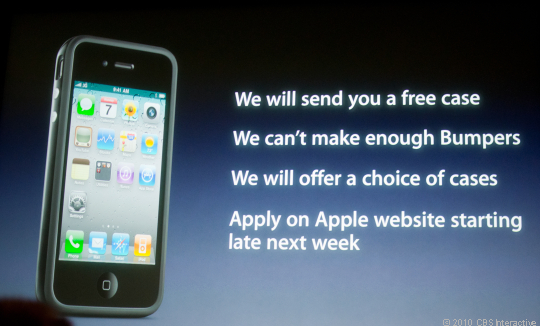Did Apple iPhone 4 flap delay long-rumored Verizon Wireless debut?

The flap swirling around the Apple iPhone 4 antenna and Steve Jobs' defense of the device may have delayed a long-rumored move to Verizon Wireless, according to an analyst.
Many analysts and press reports have the iPhone as a lock coming to Verizon Wireless in the first quarter of 2011. But Piper Jaffray analyst Christopher Larsen says the Verizon-iPhone connection may not be that strong following antennagate---or whatever you want to call it (all iPhone coverage, Apple video sans press Q&A).

For AT&T, we think all the attention on Apple has actually relieved some network image pressure, but, the bigger telecom impact from this fiasco could be on Verizon customers waiting for their own device.
Verizon has historically been known for having a very rigorous qualification process to get phones on its network (years ago, it took Nokia two years to get a phone qualified.). Over time, Verizon has also been known for having phones later than other carriers – often due to demanding tests being completed by Verizon network engineers. While we can never know for sure, it is possible that this strict testing has helped Verizon maintain its strong network image (if all of Verizon’s phones are better tuned and engineered to not drop calls, then the network would appear better).
With huge apparent pent-up demand for a Verizon iPhone, we would have thought that Verizon would take any iPhone given to it and sell it immediately in order to maintain and win share. Then, this spring brought the second generation of Droid phones (the Incredible and, now, the X) – both of which appear to have given Verizon a stronger competitive response to the iPhone (one that has better economics to Verizon than an iPhone likely would). Now we have the iPhone antenna issue putting a damper on the device and potentially giving more strength to the Android platform.
Related:
The kicker? Verizon Wireless may not take the iPhone unconditionally and that will delay Apple's debut on the network. Now Larsen still argues that the iPhone will appear on Verizon---just not as fast as the current odds show.
Add all of this up and we can connect a few dots if Larsen's iPhone-to-Verizon delay theory sticks:
- Android has more runway to gain share since Verizon's marketing heft will remain all about the Droids;
- Verizon---after years of marketing against AT&T's network---may be having second thoughts about Apple;
- Apple could benefit from all of this in the long run. Let's just say Verizon Wireless takes the iPhone 4 as currently constructed---even without the bumper. Verizon's tests may go farther than an evidence put up by Apple last week if you assume that AT&T will take any iPhone thrown its way.